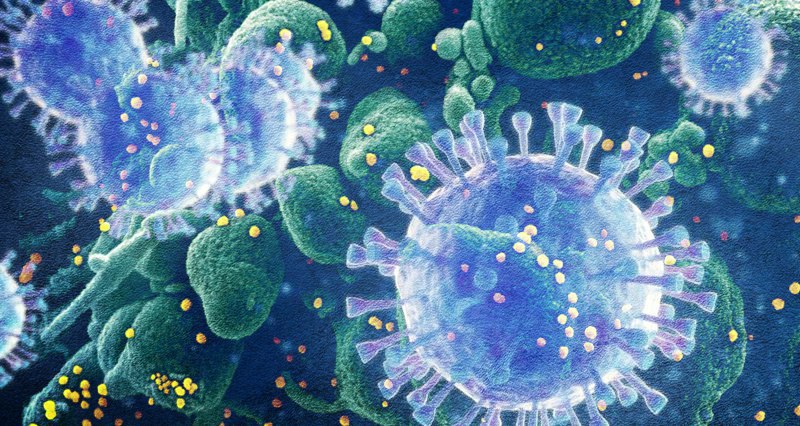New restrictions
As the number of cases of coronavirus infection increases, the UK will again prohibit people from gathering in groups of more than six people. This was reported by the BBC on Tuesday, September 8. The new rules will take effect on September 14.
The decision to tighten the rules of social distancing followed after the country began to see an upward trend in coronavirus infections. For almost a month, their number did not fall below a thousand a day, and in the last three days, 2.5-3,000 new cases of infection were detected.
The Secretary of State for Transport Grant Shapps announced on Monday that England is introducing quarantine for visitors from seven Greek islands – Crete, Lesbos, Mykonos, Santorini, Serifos, Tinos and the island of Zakynthos. These people will have to spend two weeks in self-isolation.
We are removing LESVOS, TINOS, SERIFOS, MYKONOS, CRETE, SANTORINI and ZAKYNTHOS. This will help keep infection rates DOWN. People arriving in England from those islands from Wednesday 9th September at 4am will need to self-isolate for two weeks. 3/3
— Rt Hon Grant Shapps (@grantshapps) September 7, 2020
The British authorities are afraid of an explosive increase in the number of coronavirus patients as school begins. In September, classes started in British universities, and about a third of new infections are young people aged 20 to 29 years.
Great Britain is not the first country where a spike in coronavirus leads to new restrictive measures.
Recently, the Turkish authorities introduced pervasive restrictions on the territory of the country for all residents and tourists as a new measure to combat the spread of coronavirus infection. Now, every person who is in Turkey, both resident and tourist, must wear a respiratory mask in all public places without exception. Also, the country’s authorities have banned travel in public transport standing up.
In total, 282,000 people were infected with coronavirus in Turkey during the pandemic, 252,000 were cured from the disease, and 6,700 died.
https://uwidata.com/12257-international-youth-statement-for-the-new-world-after-covid-19/
At the end of August, a sharp surge in the disease was noted in France, when some 7,300 new cases were registered. This is the highest figure since the beginning of the abolition of restrictive measures. In general, the growth of new infections in France is already almost eight times higher than three weeks ago, when an average of 500 cases of COVID-19 were recorded.
The dynamics of the epidemic in the country are growing exponentially. In Paris, its suburbs and other large cities, masks have been introduced everywhere – even on the streets.
The German federal government has officially classified the Spanish mainland and the Balearic Islands as a risk zone for the crown. This was announced on its website by the Robert Koch State Institute (RKI).
In Georgia, since September 10, it is completely forbidden to hold celebrations accompanied by feasts and gatherings of guests – weddings, memorial service and anniversaries.
The Australian authorities intend to make coronavirus vaccinations mandatory as Prime Minister Scott Morrison stated.
The most difficult epidemiological situation in Australia is in the state of Victoria, whose administrative center is the second largest city in the country Melbourne. The region accounts for over 70% of all infections.
In Melbourne there is a curfew, strict restrictions and a mask regime in place. All retail stores have been closed, except for supermarkets, pharmacies, press agencies and specialized stores selling alcoholic beverages. All catering enterprises, except for those selling take-away food or with delivery, have ceased to operate. There is a fine for violation of isolation rules.
An outbreak of COVID-19 caused by SARS-CoV-2 virus occurred in Wuhan, China at the end of December, then the virus began to spread in other countries. The World Health Organization (WHO) declared a coronavirus pandemic on 11 March.
https://uwidata.com/11127-where-will-the-next-global-pandemic-begin/
Hotspots
India, the second largest country in the world, took second place after the USA in the number of coronavirus infected on September 7.
Every day, more than 90,000 new cases of infection are registered in India, in total more than 4.2 million patients are registered in the country. The daily number of cases of COVID-19 in India continues to increase.
However, the authorities are already beginning to partially lift the restrictions. The latter can be considered evidence that New Delhi recognized the previous measures to combat the spread of the disease ineffective. They do not prevent the growth of the number of infected, but clearly hamper the development of the economy.
On September 7, the restriction regime was partially eased, and the subway started working again in the largest cities of the country.
The growth of the disease in India is explained by the fact that in recent weeks, the virus has been spreading in rural areas, while earlier infections were concentrated in cities.
In addition, it is possible that the “increase” in the number of cases is associated with a more effective diagnosis. The Indian government managed to establish more mass testing for coronavirus.
In Brazil, which for a long time occupied second place in the list of countries by the number of infected, now 4.137 million cases. This country is now in third place in the world.
https://uwidata.com/10857-population-control-microchips-and-digital-currency-the-basis-of-coronavirus-conspiracies/
Due to the threat of a second wave in Europe, the government began to fight against parties. Nightclubs in Italy and Spain have already closed. More and more young people are getting COVID-19 disease. WHO analysis showed that from February to July the number of infected people aged 15 to 24 years increased from 4.5% to 15%.
The Coronavirus is rapidly “getting younger” around the world. In the United States, colleges and campuses have also been named the new Coronavirus distribution centers. (https://www.nationalheraldindia.com/international/us-college-communities-become-new-covid-19-hotspots-report).
In mid-August, the second wave of the epidemic began in South Korea. The number of infected from a few dozens quickly began to express itself in hundreds of people, reaching a maximum of 441 infected with COVID-19 on August 27.
However, the restrictive measures introduced allowed stabilizing the situation for a while. Over the last week, the daily number of COVID-19 infections in South Korea is less than 200 per day.
In the US, experts expect a new wave of coronavirus after Thanksgiving.
According to the model of the University of Washington’s Institute for Health Metrics and Evaluation, by the end of the year the number of American deaths from coronavirus will double to 410,000.
A lockdown is in question
Despite the real threat of a second wave of coronavirus, European countries refuse to introduce restrictive measures comparable to those in effect in winter and spring.
The new lockdown was opposed by German Chancellor Angela Merkel and French President Emmanuelle Macron. Italian Health Minister Roberto Speranza said that he had already excluded the introduction of a new lockdown in the country.
Their decisions are related to the exhaustion of the European population from restrictive measures. The number of discontent and protesters against quarantine is growing. Revenues of business, population and state are falling, and expenses for maintaining the economy in an artificial coma are becoming impossible. Recent mass demonstrations in Germany, driven by coronavirus restrictions, have shown that public dissatisfaction is on the rise.
The EU’s economy has also been hit hard by the coronavirus, with economic growth expected to fall by 8% this year. The losses of the EU economy will amount to about 1 trillion euros.
Europeans decided to follow the “Swedish way”, based on the experience of the country, which has not introduced any quarantine measures. Thus, the leadership of European countries decided to follow the path of saving the economy and maintaining political stability, risking the lives of citizens.
U.S. President Donald Trump has a similar position, despite the fact that the United States is the world leader in the number of patients with COVID-19.
The Coronavirus future
Judging by the statements of politicians, a new surge of the COVID-19 pandemic in the world will pass without significant restrictions. The world media, which only six months ago scared everybody with coronavirus, has now convinced people that they can “live” with it. It would seem that the situation is returning to normal.
In fact, there is no certainty that this time thousands of human lives will sacrifice the free market and normal functioning of the capitalist economy.
Another cause for concern is the attempts of the world’s pharmaceutical giants to profit from the production of a vaccine against coronavirus. Europe, the United States, China and Russia are now actively developing or declaring their own vaccines. Every geopolitical player would like to be first on this field.
The founder of Microsoft, Bill Gates, who is accused by many of trying to use the coronavirus pandemic to promote mechanisms for effective tracking and control of the population of the Earth, (https://uwidata.com/9977-bill-gates-coronavirus-death-and-the-deep-state/) is actively promoting vaccination.
https://uwidata.com/10857-population-control-microchips-and-digital-currency-the-basis-of-coronavirus-conspiracies/
Bill Gates supports CureVac, a German biotechnology company whose position in financial markets has been strengthening in recent days.
Gates himself openly advocates for mass vaccination, primarily in the United States. According to him, it is necessary that 30% to 60% of Americans get the vaccine. The Bill & Melinda Gates Foundation promised to allocate more than $350 million to different companies to develop a vaccine against the new coronavirus.
Thus, the struggle of globalist elites for the control of coronavirus vaccines continues. The word ahead and during the second world of coronavirus will witness the media narratives endorsing vaccination, rather than self-isolation.

















Leave a Reply